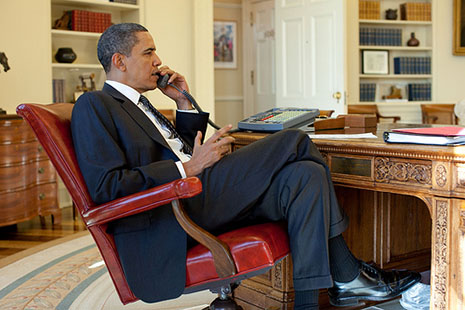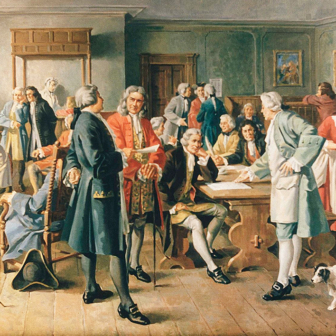An earlier version of this article appeared in the Canberra Times
THE EUPHORIA of that cold, sunny day twelve months ago – the day the Bush era finally ended – is gone, sapped by the poor economy and continued job losses, the costs of two wars, the vicious and even racist commentary from the right, the hard realities of governing in an atmosphere of poisonous partisanship – and now the loss of Edward Kennedy’s Senate seat.
Most of this should not be surprising. Governing is never easy, and Barack Obama came into office knowing that he would have to address the chaos and the economic crisis left behind by Bush and Cheney. Moreover, the American political system is fraught with checks and balances and a president cannot simply tell Congress what to do, especially in a situation where most Senate legislative action now requires sixty votes for passage rather than a simple majority of fifty-one. Everything takes time and requires ugly compromises.
The Massachusetts loss hurts but it is not fatal. It puts the Democrats in the Senate in the same situation they were in after the 2008 election and before Senator Arlen Specter switched parties. It is not the end of healthcare reform, although it certainly limits what can be done now and in the future.
It’s ironic that Republican Scott Brown won in Massachusetts partly by claiming that he would vote against healthcare reform because it would raise taxes, hurt Medicare, destroy jobs and run the nation deeper into debt (I’m bound to point out that all four of these claims are false) – and because people in Massachusetts already have universal health cover. That mandatory health cover, enacted by a Republican governor, is possible only because it leverages federal and state tax dollars.
Abroad, Obama is still loved. But at home his approval rating has fallen from almost 70 per cent at the time of his inauguration to 50 per cent now. The proportion of Americans who disapprove of the job he is doing has almost quadrupled, from 12 per cent to 44 per cent. But it’s not that Americans have suddenly fallen in love with the Republicans, who are unable or unwilling to offer a coherent alternative. Rather, they are fearful of the recession and job losses and fed up with government in general. As the public face of power, the president gets the blame.
Public concerns about the economy, healthcare and terrorism, and the media noise about tangential trivia such as “death panels,” presidential birth certificates and whether or not the president should bow when he meets foreign leaders, have obscured the very real achievements that Obama has made in his first year. His legislative record includes the Lilly Ledbetter Fair Pay Restoration Act to help victims of pay-based discrimination, the American Recovery and Reinvestment Act to drive the economic stimulus, expanding the State Children’s Health Insurance Program to cover four million more children, the Family Smoking Prevention and Tobacco Control Act to give the Food and Drug Administration unprecedented powers to regulate tobacco, extension of the Ryan White HIV/AIDS Treatment Act, and reform of veterans’ health care.
Obama has also acted to remove barriers to responsible scientific research involving human stem cells, eliminate the ban on entry to the United States of HIV-positive travellers and repeal rules that restricted federal money for international organisations that promote or provide abortions overseas. He has reached out to people of colour for his appointments and installed the first Hispanic, Sonia Sotomayor, on the Supreme Court.
Obama has done wonders for the image of his country abroad, although arguably at this early stage his accomplishments are more in the realm of creating good inputs to policy than achieving good outputs. He has shown he is serious about taking on al Qaeda in Afghanistan and Pakistan, and is pulling American troops out of Iraq, as he promised.
Unfortunately domestic issues, led by the economy, are far more important to the public than foreign policy issues, and a majority of Americans disapprove of how the president is handling these. The Republicans carp that he has tackled too many big issues too quickly and seem willing to ignore the consequences of a faltering economy, escalating health costs, a growing reliance on overseas energy sources and a lack of investment in education.
President Obama’s second year looks set to be even tougher than 2009. But that could turn around quite quickly. There’s mounting evidence that the US$787 billion economic stimulus Obama signed in February, combined with the bank bailout package, prevented an economic depression. When the economy recovers, employment figures rise, and promised healthcare reforms start to kick in, Obama will be able to claim the credit.
While the public takes issue with Obama in certain arenas, two-thirds continue to believe that he has the leadership skills and personal characteristics a president should have. In his inaugural address Obama acknowledged the difficult challenges and the scale of his ambitions and gave notice that he would not be deterred from the task ahead. Assuredly, when he delivers his State of the Union address next Wednesday evening he will look to kick-start a revitalised agenda. No one should underrate this president’s abilities to make the seemingly impossible happen. •




